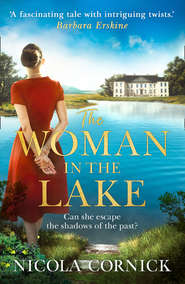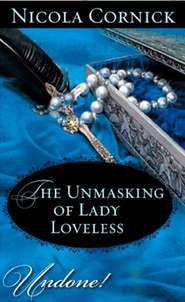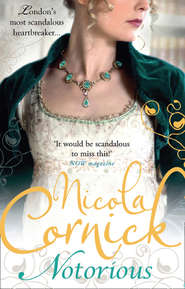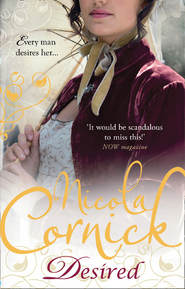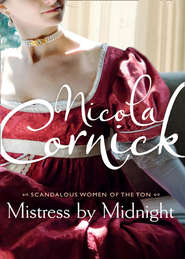По всем вопросам обращайтесь на: info@litportal.ru
(©) 2003-2024.
✖
One Night with the Laird
Настройки чтения
Размер шрифта
Высота строк
Поля
He wondered suddenly if Mairi ever rode out as he was doing this morning, free of all the trappings of luxury, alone with nothing but the wide sky overhead. He doubted it. She was hedged about by so much protocol and protection. She had probably forgotten what it was like to be alone. But perhaps she was wise. She was fabulously wealthy and it was not so many years since rich widows in these parts had been kidnapped and forced into marriage.
Marriage, he suspected, was not on Mairi MacLeod’s agenda, and why should it be when she had everything she could desire and the freedom to take lovers as she pleased? He did not particularly resent her refusal of him the previous night. They were playing the game; she knew the rules as well as he did, and it would not be long before she succumbed. She desired him, and waiting only made the anticipation sharper and sweeter.
He frowned a little, remembering the bitter tone in Mairi’s voice the previous night when she had dismissed him as a rake. Rakes made the best lovers if not the best husbands, but perhaps that was where her antipathy arose. He had never met Archie MacLeod and had heard nothing but praise for the man, but perhaps there was something he did not know. Perhaps MacLeod, extraordinary as it seemed, had kept a harem of mistresses stashed across Edinburgh.
The carriages disappeared from sight, and the dust settled on the road. It was early morning and the air was cold and fresh. Silence enclosed Jack, pierced only by the song of a skylark as it rose higher and higher into the blue arc of the sky. The isolation was almost eerie, poised on the edge of loneliness. Jack urged the horse to a walk and headed on down the track into the next glen.
As the road wound downhill he passed a scattering of white-washed crofts at the side of the track. They were empty, the walls starting to crumble, ruined chimney stacks pointing to the sky. A little farther there was a tiny kirk, foursquare and gray, with its bell still hanging from the tower.
Jack paused. Memory was pressing close now. He could almost feel the ghosts at his heels. This had been one of his father’s livings though the Reverend Samuel Rutherford had not been a particularly devoted minister of the church. As the son of a baron, he thought it was his right to collect rich livings as he might silver or porcelain. They were an adornment to his status, but he had little interest in the congregations for whom he had a responsibility. Jack’s mouth twisted wryly. He had often thought that his obsession with work was a direct rebellion against his father’s deplorable laziness.
He tied the horse to the railings around the old churchyard and walked slowly up the path. This was where his parents were buried. His father had built a grand manor a quarter mile down the road, a house that Jack had taken great pleasure in abandoning to wrack and ruin. When he had returned from Canada and was looking for an estate of his own, Black Mount was the very last place he would have considered.
The dew was still fresh on the grass, though the sun was hot and would dry it soon. Jack paused by the graves of his parents. There was a ludicrously ornate mausoleum for his father, which was completely out of place in the stark simplicity of this country churchyard. His mother’s stone was less elaborate: “Beloved wife of Samuel Rutherford...” Those words, Jack thought, hardly did justice to the all-consuming love that his parents had felt for each other.
He felt chilled all of a sudden, though there was no cloud covering the sun. His parents’ love for each other had been exclusive, violent and in the end utterly destructive. When he was a child, it had been something he had not remotely understood. As an adult, he could see how dangerous love had proved to be for them.
He went down on his knees in the grass. Here, overgrown with strands of dog rose and bramble, pink and white, was a simple stone engraved with the name Averil Rutherford and the dates 1791–1803. He brushed the undergrowth aside. Suddenly his hands were shaking.
The harsh call of a black grouse made him jump. A shadow had fallen across the path. Looking up, he saw a man in black cassock and white collar, his father’s successor, perhaps, in this remote spot.
“Can I help you?” the man said, but Jack shook his head. Suddenly he was keen to be gone.
“No,” he said. “Thank you.”
He felt the man’s eyes on him all the way down the path, but he did not look back. He unhitched the reins and threw himself up into the saddle without bothering to lead the horse over to the mounting block, and kicked the stallion to a gallop. He knew he could not outrun the memories.
And he knew that no one could help him.
CHAPTER SIX
MAIRI STAYED THE second night of her journey with Lord and Lady Gowrie at Lochgowrie Castle near Kinlochleven. It was nice to be in a private house rather than an inn, to eat well, to have good company, hot water and a bed the size of Dunbartonshire. As she took a bath before dinner to wash away the aches and pains of the journey, she reflected that she was in all probability spoiled. Wealth and privilege tended to do that to a person even when that person was as aware as she that the privilege came with a very high price.
Maria Gowrie was a friend of hers and fellow member of the Highland Ladies Bluestocking Society. They dined quietly together, just the three of them, for Maria said rather plaintively that their neighbors, the Duke and Duchess of Dent, had refused their invitation since they too had a guest.
“The cousin of the Marquis of Methven,” Maria said. “Jack Rutherford. I did ask him if he would like to join our party here, but he is so in demand. He already had three invitations.”
Mairi rolled her eyes. Even here it seemed impossible to escape Jack. If he was not actually present, then people were still talking about him.
“I asked the Dents if they would all care to join us for dinner, but Anne Dent wishes to keep Mr. Rutherford for herself,” Maria continued.
Вы ознакомились с фрагментом книги.
Приобретайте полный текст книги у нашего партнера:
Приобретайте полный текст книги у нашего партнера:






